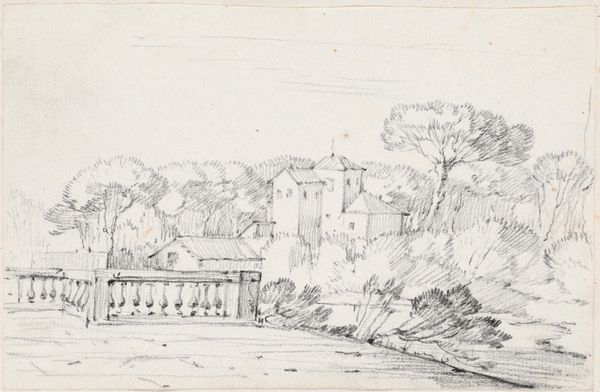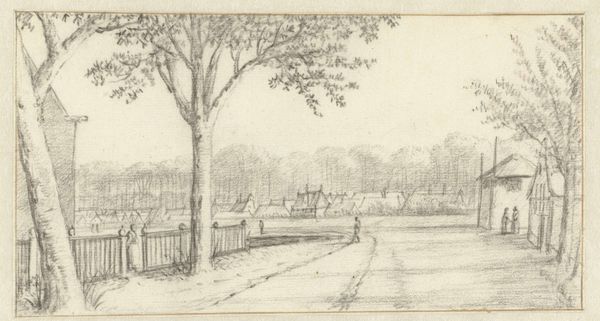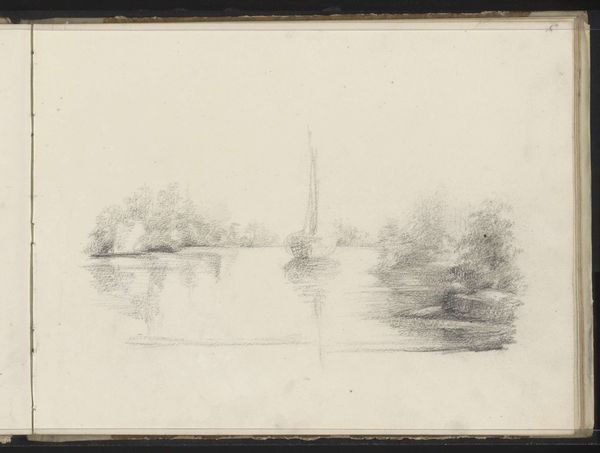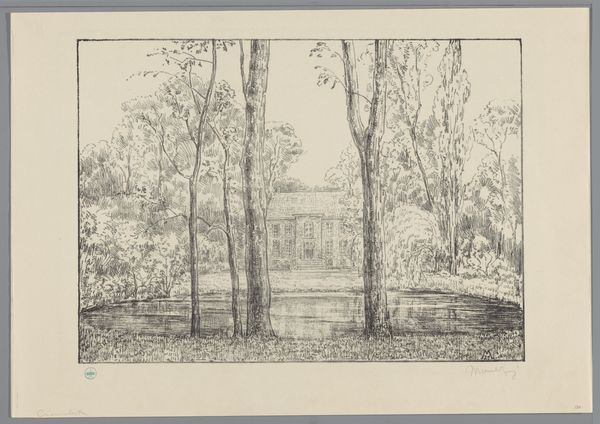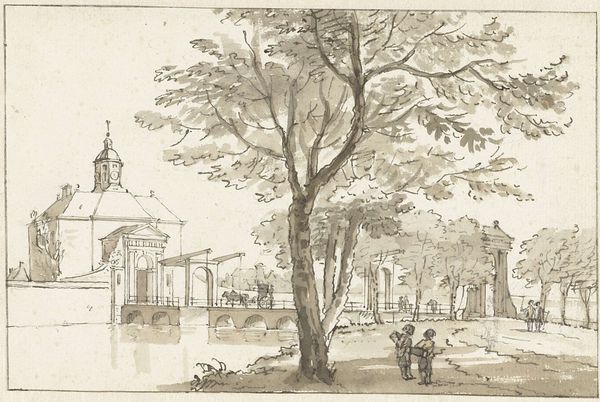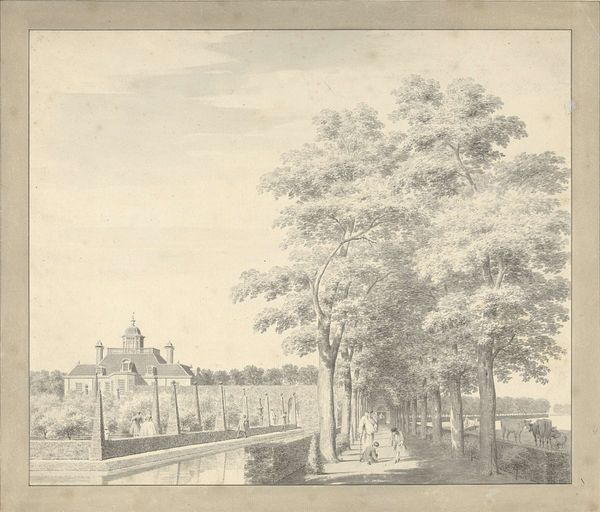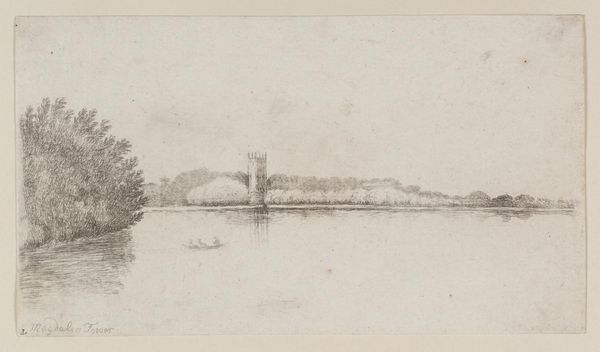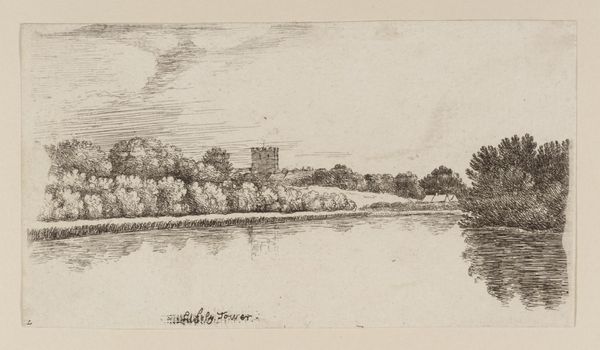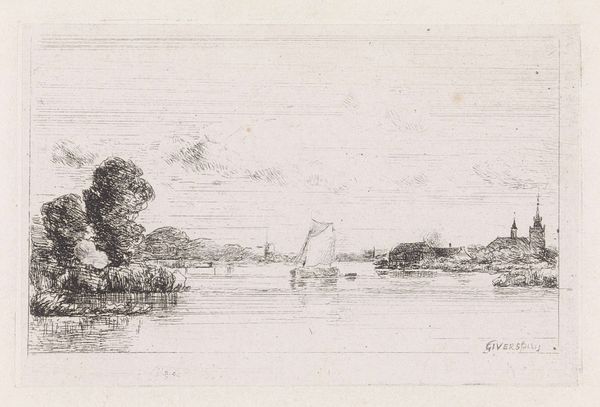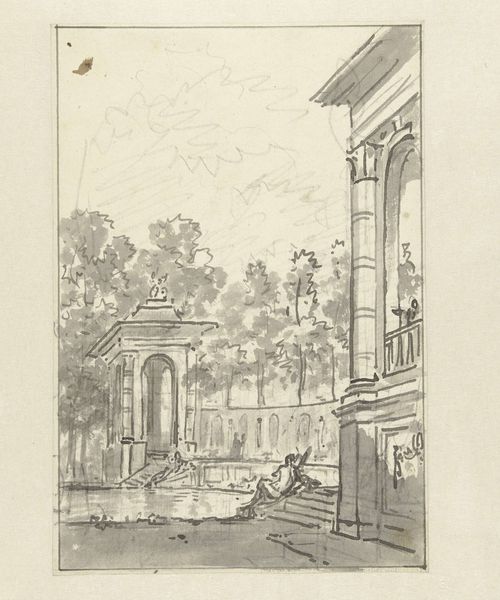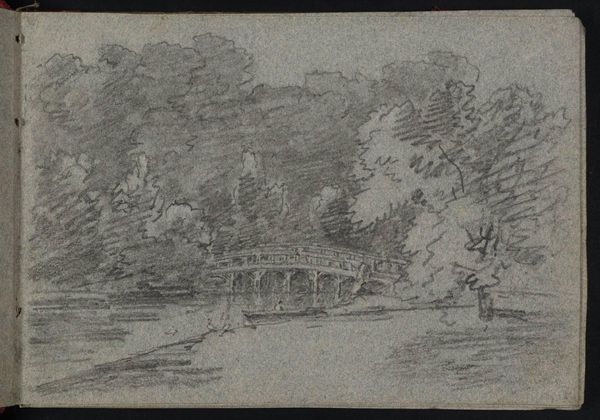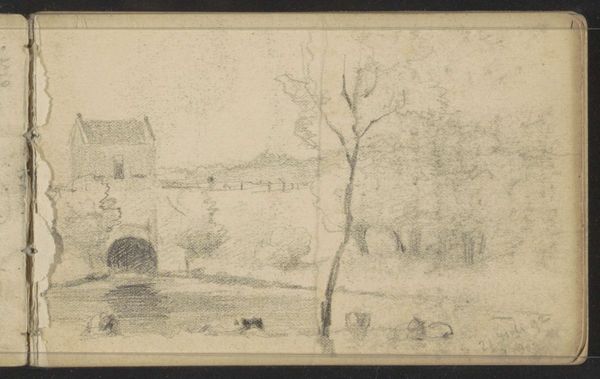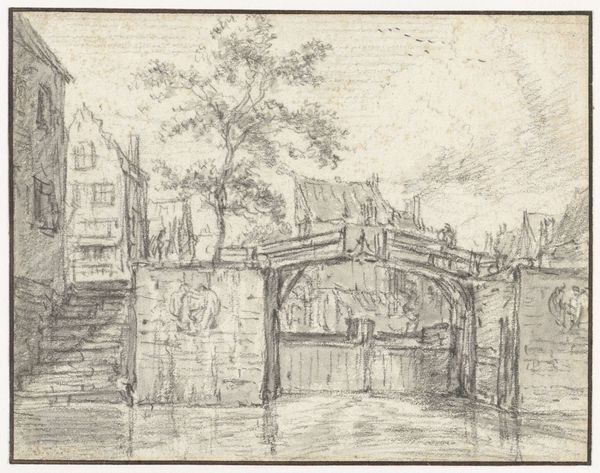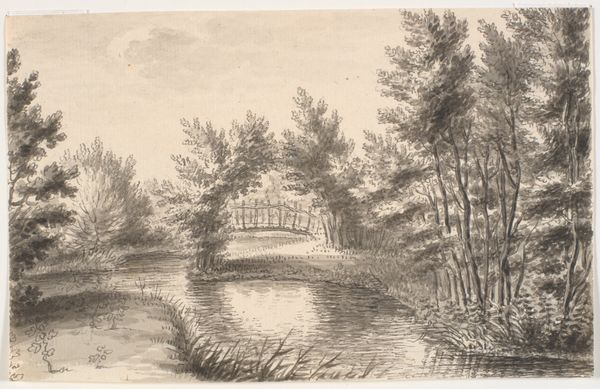
drawing, pencil
drawing
dutch-golden-age
pencil sketch
landscape
pencil
genre-painting
realism
Dimensions: height 105 mm, width 206 mm
Copyright: Rijks Museum: Open Domain
Curator: This pencil drawing is titled "View on the Vecht," attributed to Abraham Rutgers, dating from approximately 1682 to 1699. It captures a serene scene along the Vecht river. Editor: My immediate sense is of quiet observation, almost like a stolen glance. The soft pencil lines create a gentle, hazy atmosphere. It's incredibly still, like time held its breath. Curator: It is interesting that you say still, the drawing adheres to conventions of Dutch Golden Age landscape, yet deviates; where paintings celebrated trade and power, here there is quiet leisure. Look at the figures dotting the scene. Editor: They almost seem like ghosts, placed in such a quiet surrounding! There's the suggestion of figures in boats and walking, but so subtly rendered; there is no real indication of social hierarchy or commentary in the foreground. How can the historical context provide more perspective on such subtleties? Curator: The Vecht was a popular retreat for wealthy Amsterdam merchants. This view suggests more than wealth; it speaks to the burgeoning sense of individual experience within a landscape, the personal and reflective connection to nature taking root during this era, the sense of personal perspective; something about modern feeling that is just burgeoning at this time, maybe in the quietest ways, through the choice of scenery. Editor: I appreciate your insight on wealth. The Dutch Golden Age involved more than commerce. It created unique circumstances for the study of humanity and philosophy of personhood. Here, the social dynamics of the time, the burgeoning merchant class finding respite, create space for those personal relationships and self-exploration alongside this waterway. Curator: It’s remarkable how Rutgers uses such simple means—pencil on paper—to convey such depth. It transcends simple topographic record, becoming almost a meditative space for the viewer as well, inviting contemplation. It reflects the personal relationship many of Rutgers' wealthy clients had with landscape and ownership, and their desire to create, shape and share that sense of self. Editor: This landscape almost performs the social ideals and quiet personal philosophies it implies, allowing for a peaceful introspection through art that remains powerful today. I was really too eager to say I found the whole thing so "quiet"... Curator: Quite, it is only in that reflective hush that one truly may start to hear the whispers of past and present together.
Comments
No comments
Be the first to comment and join the conversation on the ultimate creative platform.
